Original published October 2022; Fairtrade pricing section revised August 2023. Brand updates made August 2024.
This research was done for our morning tea guide. Check it out for a summary of the coffee research, as well as information and advice on slave-free tea, biscuits, hot chocolate, sugar, and cordial.
Whether you prefer plunger coffee, espresso or a cup of instant, you surely prefer your coffee slave free! Read on to learn why it might not be, and how to recognise slave free options, or jump straight through to our recommendations.
Table of Contents
- Issues
- How can you identify slave free coffee?
- What do we recommend?
Issues
Around 80% of coffee is grown on small-holder (single-family) farms in developing countries. Child labour* is very common on those farms, with around 20% of children in coffee-growing areas typically working rather than going to school. The main driver for this is poverty. The market price of coffee is well below a living income, and both farmers and coffee pickers often have to pull their children out of school to work alongside them in order to make ends meet.
*Note that child labour doesn’t just refer to children working as such, but to children doing work that interferes with their education and/or their normal growth and development.
Most coffee growers have few options to improve their incomes. Growers that are part of co-ops, as well as large plantation growers, can sell their coffee directly at the London Coffee price, but small-holders (the majority of producers) must sell to middle-men, often at very low prices. In addition, many sell their coffee ’wet’, i.e. fresh, rather than as ‘green beans’ - the form desired by international importers. Smallholders rarely have the capacity to remove the pulp, ferment the beans and dry them to produce green beans. Even if they do, sometimes the prices are so low this extra work isn’t worth it - and it’s impossible for the farmer to know in advance whether or not this will be the case.
Some income improvements can be made by improving farming techniques - and some farmers are able to market high-quality coffee through direct trade relationships - but most farmers are too stretched to have the capacity to improve their incomes in these ways without assistance.
New Zealand imports coffee from a large number of countries, but the top 10 (in order of highest to lowest imports) are:
- Brazil
- Colombia
- Papua New Guinea
- Ethiopia
- Guatemala
- Vietnam
- Peru
- Indonesia
- Honduras
- Costa Rica
All of these countries have been identified as having child labour in their coffee industries (including Papua New Guinea, in our local region), with Ethiopia, Guatemala and Honduras being at high risk for child labour. Forced labour is also used in the Brazilian coffee industry.
It is thus extremely likely that coffee you buy in New Zealand will have been produced using child labour. To make sure that your coffee is free of child labour, look for products where the famers are paid enough that they don’t need to pull their kids out of school just so the family can survive and where the farms are being checked for child labour. Child labour is so entrenched in many of these communities that it can take a while for farmers to stop employing their own children, even as prices improve.
How can you identify slave free coffee?
The main ethical certifications we have seen on coffee products in New Zealand are Fairtrade and Rainforest Alliance. Trade Aid products use WFTO certification; Starbucks uses an ‘in-house’ certification known as C.A.F.E.. A number of products also claim to be ‘fair trade’ without obvious certification.
We have looked into Fairtrade, Rainforest Alliance, WFTO and C.A.F.E.; we have also looked into Hummingbird, as it appears to be the dominant brand claiming to be fair trade without displaying an independent certification. There are too many products making fair trade claims without certification for us to have been able to look into them all. If your favourite brand is one of those, please get in touch with them and ask them two questions:
are they doing any explicit checks to make sure child labour isn’t used on the farms that supply them? If they are a very small supplier where they know all the farming families personally and can be confident their kids are in school, that would be a sufficient answer. However few coffee brands are small enough that this would be the case, and for them some form of farmer education, coupled with systematic checking, is necessary.
how do they know that the families that grow their coffee are earning a living income - or, at least, earning well above market rates? Again, if they know them personally, this is something they may be able to see. However, for most suppliers they will need to have found out two things:
- what a living wage is in the area they buy from (you can see living wage estimates for many locations here) - or, at least, the current market rate;
- assuming they don’t pay the farmers directly, an understanding of how the price they pay the broker relates to the price the farmer is paid.
Note that a living income can mostly simply be achieved by paying farmers a better price, but it can also be achieved by equipping the farmers to farm more efficiently and/or to process their beans further on-farm to achieve a better price on the open market.
Recommended certifications (including ‘in-house’ certifications)
We have found four certifications that we recommend: if you see any of these marks on your coffee you can be confident it’s slave-free. But the four certifications are not equal! Whilst all of them check reasonably well for child labour, they differ considerably on farmer incomes. Only one of them (World Fair Trade Organisation) provides farmers with a living income, but all of them ensure farmers are paid more than their uncertified neighbours. They are listed in order of how good we think they are for farmers, with the strongest certification first and the weakest last.
World Fair Trade Organisation (WFTO)
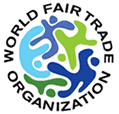
Unlike most other certifications, WFTO doesn’t issue different standards for different commodities. However, you can be confident all WFTO-certified products have involved:
- no forced labour or child labour
- sufficient payment that all workers can receive at least a living wage (calculated for that country or region);
- safe working conditions
We are confident that WFTO certified coffee is free of child and forced labour and that the workers received decent pay and conditions. All Trade Aid coffee is WFTO certified, as is some of the Cafe L’Affare range.
Fairtrade
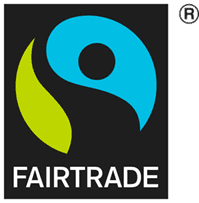
All Fairtrade certified products have been subject to audits to check that no child labour or forced labour was used on the farms where they were grown, and any instances found are remediated. There have also been audits to check that various health and safety standards were adhered to.
When it comes to income, Fairtrade does less well.
Growers are paid a minimum price; as of August 2023 this ranges between $1.20 and $1.80US per pound (with an extra 40c per pound for organic coffee) depending on the type of beans. In many recent years this price is more than the market price of coffee (those numbers are for washed arabica beans, for which the Fairtrade minimum price was $1.40/pound from 2011 to 2023, and is currently $1.80/pound), but it’s often very similar to the market price and currently (October 2022) it’s very significantly less. As discussed above, smallholder coffee farmers generally don’t get the market price as they sell through middlemen; however, this doesn’t apply to smallholder farmers who sell through Fairtrade: they are all members of co-ops, and co-ops generally expect to receive the market price. The Fairtrade minimum price thus gives these farmers a certain degree of stability in an environment where market prices are highly volatile.
However, the Fairtrade minimum price does not necessarily translate into a living income, as that varies region to region. Fairtrade has recently begun to calculate ’living income reference prices’ (LIRPs) for the various commodities they certify. So far they’ve calculated LIRPs for two of the top five countries from which Aotearoa imports coffee: Colombia and Ethiopia. The LIRP for Colombia (roughly $1.38US/pound) isn’t much above the Fairtrade minimum for robusta coffee ($1.20US/pound) and is well below the minimum for arabica beans ($1.75US/pound) - so farmers in Colombia should be earning at least close to a living income. The LIRP for Ethiopia, on the other hand, is between $2.96 and $4.14US/pound (depending on whether the coffee is grown under shade or not) - vastly more than the Fairtrade minimum prices of between $1.20 and $1.80US/pound. Farmers in Ethiopia won’t be earning anywhere near a living income if all they get is the Fairtrade minimum price.
Plantations are required to be progressing towards a liveable wage for all staff (as well as having other required benefits, such as sick leave and holiday pay). However for the majority of coffee, which is grown by smallholder farmers, there are no such requirements, and many of them will currently be earning well below a living income.
Fairtrade certified farmer groups do receive a premium (in addition to the minimum price) of 20c per pound of coffee sold. This is not direct income to the farmer, but rather money paid to the community for them to collectively spend on projects that benefit the community. It is up to the farmers how this money is spent - however, most commonly it is spent on farm improvements, which will likely translate to better productivity and hence better incomes.
We are confident that Fairtrade coffee will be free of child and forced labour; the farmers growing it will also always earn a little more than their uncertified neighbours (and considerably more in years when prices are very low). However they could still be earning well below a living income.
Rainforest Alliance
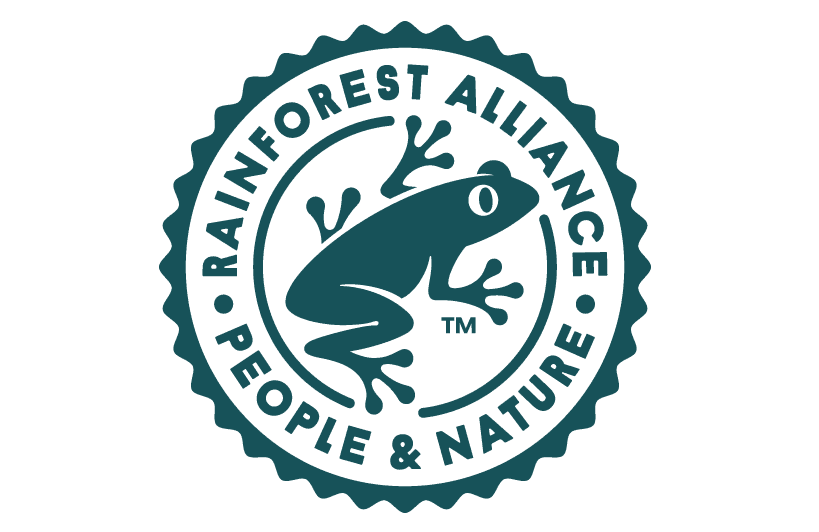
Rainforest Alliance certification ensures that there are good checks for child labour and forced labour, as well as education for farmers about these practises and remediation procedures.
However, when it comes to the provision of a living income, they don’t do so well.
Certification comes with farmer education in farming methods that can improve yields, as well as education in climate-smart agriculture (things like growing coffee under shade trees and having ground-cover crops to protect the soil). These will definitely improve incomes, but it is hard to know by how much.
Buyers are also required to pay farmers a sustainability differential (a fee paid, in addition to the market price, to recognise that farmers have incurred additional costs by eliminating things like child labour) and a sustainability investment (to enable them to improve farming practises). This system is too new for us to be confident of the impact it is having on incomes, but we are uncertain if it will work. The amounts for these payments are negotiated by each farming group, rather than set by Rainforest Alliance, and we are unsure if farming groups will have sufficient bargaining power to ensure adequate payments.
Lastly, employed workers will be having incomes that steadily improve, with the goal of eventually paying a living wage. However, this provision only applies to large farms, or small farms that hire 5 or more workers. The vast majority of farms don’t formally employ anyone most of the year (they are family farms), and, when they do employ people (in the picking season), employing 5 or more workers would be rare. So this provision doesn’t apply for the vast majority of certified coffee; for most paid workers, the only requirement is that they be paid the legal minimum wage.
We are confident that Rainforest Alliance certified coffee will be free of child and forced labour, and that the farmers growing it are eaning a little more than their uncertified neighbours; however, they will not earning a living income.
The Rainforest Alliance logo is widely used on coffee products.
Starbucks C.A.F.E.
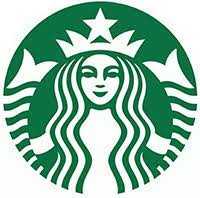
C.A.F.E. practises is a scheme used by Starbucks to certify coffee used in both their stores and in their ‘at home’ range. Whilst it is an in-house certification, the standards are publicly available and independently monitored by SCS global. Since 2019, 99% of Starbucks coffee has been produced according to the standard.
C.A.F.E. has zero tolerance of child labour but, unlike both Rainforest Alliance and Fairtrade, C.A.F.E. simply checks for child labour and reports violations. They do not have ongoing community monitoring, community education processes or remediation processes. They recommend child labour inspections are carried out at peak harvest season (when it is most likely children will be working), so they are reasonably likely to find cases of child labour, but their less wholistic approach is likely to be less robust.
C.A.F.E. requires that all paid workers are paid at least the legal minimum wage; there are also a number of requirements aimed at improving farm productivity. Farms are awarded extra ‘points’ if they go beyond these minimums; a farm that only meets the minimum standard is a ‘verified supplier’, but one that goes considerably beyond them is a ‘strategic supplier’. We have not found any publicly available information as to what this means in terms of pricing, or any information about the prices Starbucks pays in general. We have heard anecdotally (from a human rights worker based in Thailand) that farmers in her region prefer to supply to C.A.F.E. over Fairtrade as the pay is generally better. We have contacted Starbucks to ask for more information on this (October 2022).
Starbucks also invests in research into improved productivity on coffee farms and passes this knowledge on to farmers: this will likely lead to them having better incomes than their neighbours who sell to other buyers.
S&P global ranks Starbucks well above the industry average not only on social criteria, but also environmental and governance.
We believe that farms supplying to Starbucks C.A.F.E. are reasonably likely to be free of child labour. We are uncertain what sorts of incomes they will receive: they will likely earn more than their neighbours who sell to other buyers, but less than a living income.
What do we recommend?
If you’re looking for coffee in a particular form (e.g. capsules, beans or instant coffee), click through to our recommendations by product. That section includes products for commercial customers, such as products in larger volumes or in sachet form. Otherwise read on to see which brands we recommend.
Recommendations by brand
Fully recommended brands
These are brands where all their products carry the relevant certification. We start with the certification we consider strongest; within each certification we try to start with widely available brands before moving to more boutique brands.
Brands certified by the World Fair Trade Organisation

Trade Aid
The entire Trade Aid coffee range is certified fair trade by the World Fair Trade Organisation. They sell coffee beans, ground coffee and instant coffee. Buy it online or look for it in your local supermarket or health food shop.
Brands certified by Fairtrade
There are over 20 coffee brands with products certified by Fairtrade. We are focused here on the more mainstream brands, or those selling products that are otherwise hard to find (e.g. Fairtrade instant decaf coffee). At the end of the list we list many more boutique brands that largely sell online or in specific cafes.

Everybird
Everybird coffee is available at all major supermarkets and some health food shops. They have an ‘everyday’ blend and a ‘half-caf’ blend with half the caffeine; both available as beans, plunger grind and espresso grind.
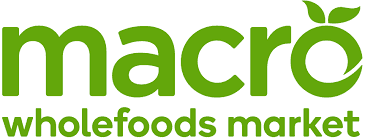
Woolworths Macro
The coffee in Woolworths’ in-house organic brand, Macro, is all Fairtrade certified. They have medium roast coffee (both beans and ground) and dark roast (both ground and beans). Available at Woolworths - likely also at Fresh Choice.
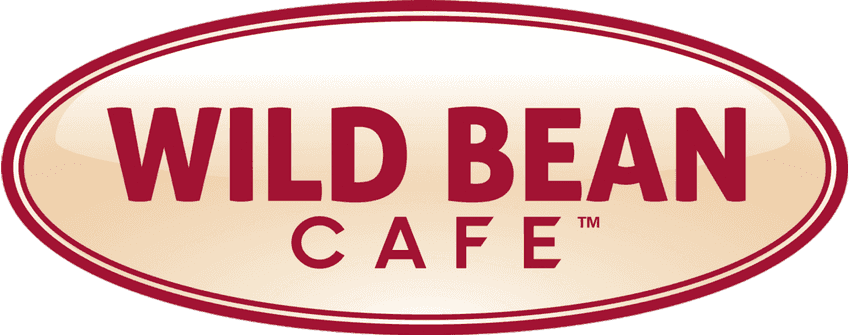
Wild Bean
All coffee at the BP petrol station Wild Bean cafes is Fairtrade, as is their hot chocolate. They serve both single-origin Colombian and their signature blend.

Clipper
Clipper teas sell two coffees in Aotearoa: an instant medium roast and an instant decaf. These are widely available in supermarkets and health food shops.

Common Good Coffee
Common Good Coffee sell a range of blends and single origin coffees in plunger and espresso grinds; they have a decaf option. Available online, from various speciality shops or from office supply shops.
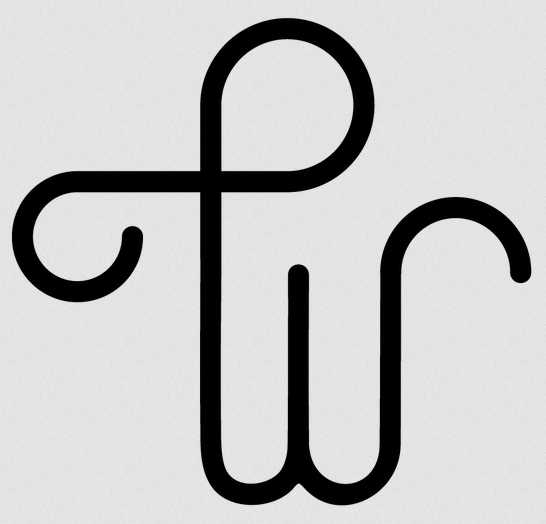
Wayward Brothers Coffee
Wayward Brothers Coffee is available exclusively from Office Max. They have two blends - Dominion Bold and Tasman Smooth, both available as beans and as a plunger/filter grind.
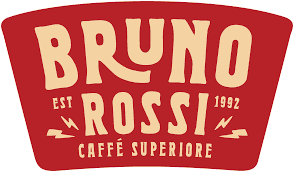
Bruno Rossi
Bruno Rossi makes three blends: Primavera (the smoothest), Alto and Uno. All sold only as beans. Available office suppliers; also served at many cafes.
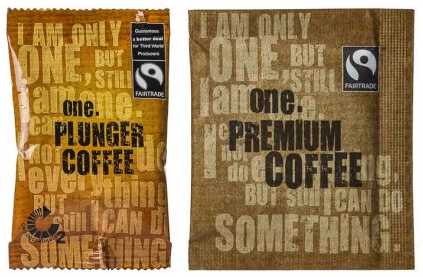
ONE
One sells sachets for the hotel and motel industry: these include both plunger and instant coffee sachets.
Boutique Fairtrade brands

Many small coffee roasteries buy Fairtrade certified beans and are registered to use the Fairtrade logo. They all sell online, some also sell direct from their premises or in cafes in their local area. This list may not be complete, but the boutique Fairtrade brands we are aware of are listed below. Get in touch if you know of more!
- Kokako: blends and single origin coffees, available online or at many cafes and specialist retailers
- La’vita: single origin and blended coffees, beans and ground, located in Palmerston North
- Kush: mostly single origin, beans and ground; based in Nelson
- Good Fortune: blends and single origins, beans and ground; based in Petone
- Waiheke Bean: full, half-decaf and decaf; full is single-origin from Papua New Guinea, others are blends; whole beans or ground; based on Waiheke Island.
- Coffix: whole beans and plunger grind, available online
- Inca Fe: single origin coffees, beans or ground, available online
Brands certified by Rainforest Alliance
Note that some of these products may display the UTZ logo or the older version of the Rainforest Alliance logo, rather than the current one. Rainforest Alliance is nearing the end of a merger and transition, so multiple logos are still in use. In addition, some brands (such as L’OR) choose not to display any logo, and instead note on their website that all products are Rainforest Alliance certified.
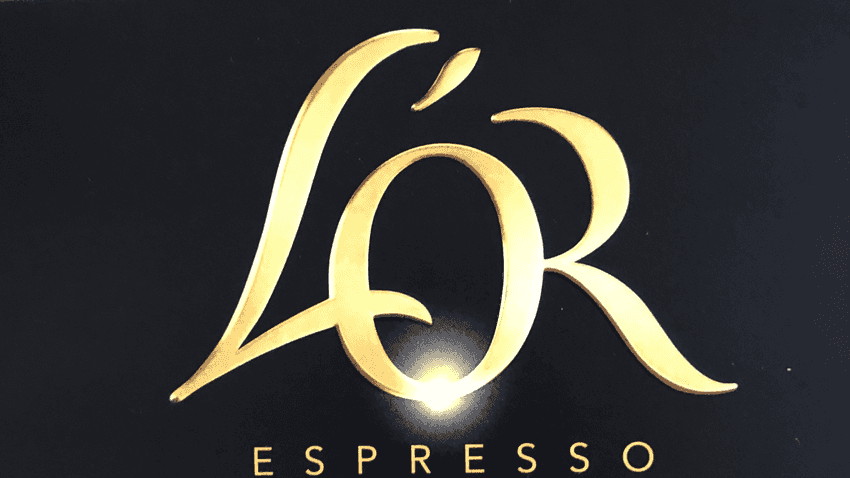
L’OR
L’OR sells coffee capsules in a range of styles; available at most supermarkets. The whole range is Rainforest Alliance certified.

Woolworths own brand and essentials
All Woolworths own brand and essentials coffee is Rainforest Alliance certified. Includes flavoured coffee sachets, coffee pods, coffee beans, ground coffee and instant coffee.
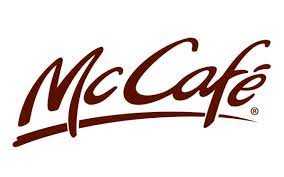
McCafe
The McCafe coffee range is all Rainforest Alliance certified but, so far as we know, not the coffee at McDonalds itself.
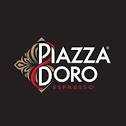
Piazza Doro
All Piazza Doro coffee is Rainforest Alliance certified. Look for it at office supply stores. They sell beans in a variety of strengths.
Starbucks C.A.F.E. practises

Note that the coffee at Starbucks cafes all use this in-house certification, as does the coffee in their “at-home” range.
Starbucks at home
Starbucks at home coffee is widely available in supermarkets and at office supply stores. C.A.F.E. practises is not mentioned on the packaging, although the organisation that those standards were developed with (Conservation International) is mentioned. We have confirmed with Starbucks at home NZ that the certification applies to all their products.
The range includes a wide range of coffee capsules (in packs of up to 36) and both dark and medium instant coffee.
Partially recommended brands
These are brands where only some of their products carry the relevant certification: always look for the certification mark! We start with the certification we consider strongest; within each certification we try to start with widely available brands before moving to more boutique brands.
Brands certified by the World Fair Trade Organisation
L’Affare
L’Affare sells a wide range of coffee products, only some of which are fair trade. Those products are certified through WFTO, but they don’t display the logo - only companies that themselves are certified have the right to use that.
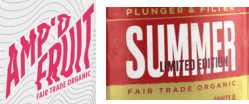
Your local supermarket will likely stock L’Affare whole beans and ground coffee. Only some of these will be fair trade: make sure you look for the words “fair trade” under the product name before you buy. Office supply stores also stock their beans, ground coffee and coffee sachets - again, check for the words “fair trade” under the product name. LAffare’s online store sells fair trade coffee sachets, capsules and a greater variety of beans and grinds. L’Affare coffee is available at some cafes: be sure to ask if they’re using the fair trade selection.
Brands certified by Fairtrade

Robert Harris
Robert Harris sells two Fairtrade certified blends: their Intrepid whole beans and their Ethiopian Fairtrade plunger/filter grind. Available at Robert Harris cafes.

Gravity
Gravity Fair Deal beans are Fairtrade; available at office supply stores.

Prima
Prima Coffee’s Fairtrade range includes a range of blends and single origin coffees, including decaf. Available online or from office supply stores. Check for the Fairtrade logo.
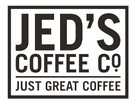
Jeds
The Jed’s coffee available online or from supermarkets isn’t Fairtrade, but you can buy both beans and plunger/filter coffee that if Fairtrade certified from office supply stores.

The Market Roast
The green label Market Roast coffee products are Fairtrade certified, but the red label ones are not. Both are available in office supply stores.
Smaller brands
Some small coffee roasteries buy Fairtrade certified beans for some of their products but not others. For these, always look for the Fairtrade logo. The brands below all sell online, and some also sell direct from their premises or in cafes in their local area. This list may not be complete, but the boutique partially-Fairtrade brands we are aware of are listed below. Get in touch if you know of more!
- Planet Organic: capsules as well as whole bean and ground coffees; available at many health food and organic shops. Note that their ‘geisha’ coffee is not fair trade - make sure to look for the logo.
- Aoraki Coffee’s Decaf - available as beans and many grinds
- Havana’s Honduras Fairtrade single origin and Fairtrade Organic blend are certified. They are available as blends and a huge range of grinds.
- Global Coffee: roasted beans, plunger grind and espresso grind. Most are not Fairtrade - look for the logo.
- Altura: Fairtrade organic blend only - as beans and a wide range of grinds.
- Ignite Artisan only; as beans or espresso or filter grind
Brands certified by Rainforest Alliance
Note that some of these products may display the UTZ logo or the older version of the Rainforest Alliance logo, rather than the current one. Rainforest Alliance is nearing the end of a merger and transition, so multiple logos are still in use.
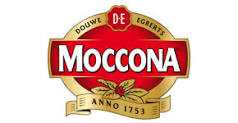
Moccona Barista Reserve capsules
Most of the Moccana range is uncertified, but their barista reserve nespresso-compatible capsules are certified by Rainforest Alliance. Note that their barista reserve instant is also uncertified. Look for the certified capsules at your local supermarket.
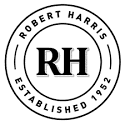
Robert Harris capsules
The Robert Harris capsule range all appear to be Rainforest Alliance certified, although this may be a recent change (as of October 2022) - some online images (including on their own website) do not display the logo. Check for the logo before buying. We are certain the following are certified: French Roast, Intense Shot French Roast, Italian Roast, Intense Shot Italian Roast, Colombian blend, Roma Roast. Most other Robert Harris products are uncertified.


Movenpick
Movenpick coffee capsules are all Rainforest Alliance certified. We are unsure if any other Movenpick coffee products are available in New Zealand, but if you see any, look for the Rainforest Alliance logo - some products they sell in other markets are uncertified. We have seen these in Ballantynes and PakNSave.
Douwe Egberts
Douwe Egberts has a Rainforest Alliance certified liquid vending machine coffee concentrate. Look for it at office supply stores. Note that not all Douwe Egberts products are RA certified - look for either the RA or UTZ logo.
Recommendations by product
There are a great many coffee brands certified under the certifications we recommend: the Fairtrade logo, in particular, is used by over 20 brands! In the lists below, we focus on ‘mainstream’ brands: products you’ll find in your supermarket or at the Warehouse, coffee supplies sold in the main office supply stores and own brand products of large chains. We list the ones with the strongest certifications (i.e. those that are best for farmers) first. Occasionally, a particular product is produced by only one brand (e.g. instant decaf coffee) - when that occurs, we’ll list that product, even if you’ll have to go somewhere special to buy it.
If you’re after coffee for your office, church, motel etc., click through to recommendations for supplies in commercial quantities and formats. We’ve also popped out all the decaf options into their own section for those specifically looking for those.
If you’re not familiar with a brand mentioned, click up to our recommendations by brand - you’ll see images of the brand logos there.
And if you’re looking for more options, check out our list of boutique Fairtrade certified brands and our list of smaller brands with a few Fairtrade offerings.
Coffee beans
- Trade Aid: 200g, 1kg
- L’Affare fair trade range: 200g-2kg sizes
- Everybird everyday blend and half caf blend, 200g
- Woolworths Macro medium roast, 200g
- Robert Harris Intrepid, 200g
- Woolworths own brand, French and Italian, 200g
Ground coffee
- Trade Aid: both plunger/filter and espresso grind; includes decaf; 200g and 1kg
- L’Affare fair trade range: all available as plunger/filter grind, some also as espresso and stovetop; wide range of sizes
- Everybird everyday blend and half caf blend, plunger/filter and espresso grind; 200g
- Woolworths Macro medium roast and dark roast, 200g
- Robert Harris: Ethiopian Fairtrade (plunger/filter grind), 200g
- Woolworths own brand: all varieties, including blue mountain, Italian and French; espresso and plunger grinds; 200g
Coffee capsules
- L’OR: whole range (wide variety, including decaf)
- Moccona: barista reserve capsules only
- Robert Harris: whole capsule range
- Starbucks whole range (wide variety, including decaf)
- Movenpick whole range
Instant coffee
- Trade Aid
- Clipper Decaf and Medium Roast - buy from supermarkets and health food shops. Woolworths freeze dried espresso and classic; Woolworths granulated instant coffee
- Starbucks: comes in both medium and dark roast
Flavoured coffee sachets
- Woolworths own brand all flavours (includes caramel latte, chai latte, mocha, flat white and cappuccino
Coffee by the cup from large chains
- the Wild Bean coffee range at BP petrol stations
- the coffee at McCafe cafes
- the coffee coffee at Z petrol stations
Decaf and lower caffeine products
- instant decaf from Clipper ( Supermarkets and health food shops)
- decaf capsules (espresso roast) from Starbucks at Home (at many supermarkets)
- decaf capsules (ristretto decaffeinato) from L’OR (at many supermarkets)
- decaf beans and a range of grinds from Prima Roastery
- ground decaf from Trade Aid (online and at their stores)
- ground decaf from Common Good (online)
- halfcaf ground coffee (plunger and espresso) and beans from Everybird (online and at physical shops including some supermarkets)
- halfcaf and decaf beans, plunger grinds and filter grinds from Waiheke Bean (online)
Products for commercial/corporate customers
Coffee beans:
- Trade Aid: 1kg and larger quantities are available too
- L’Affare Gusto 1kg bag
- Common Good Coffee: decaf (500g) and better blend (1kg)
- Wayward Brothers Dominion Bold and Tasman Smooth blends, both 1kg
- Bruno Rossi Primavera, Alto and Uno, all 1kg
- Gravity Fair Deal beans, 1kg
- Prima Verde Fairtrade beans, 1kg
- Jed’s Fairtrade coffee beans, 1kg
- The Market Roast Fairtade Organic, 1kg
- Piazza Doro in various strengths, 1kg
Ground coffee:
- Trade Aid Better Day 1kg bag, medium grind (filter/plunger), various other flavours and larger quantities are available too
- L’Affare Gusto 1kg bag, plunger and filter grind
- Common Good Coffee: decaf (500g) and better blend (1kg) - both plunger grind
- Wayward Brothers Dominion Bold and Tasman Smooth blends, both 1kg, both plunger/filter grind
- Prima single origin Colombian, plunger/filter grind, 1kg
- Jed’s Fairtrade plunger and filter grind, 1kg
- The Market Roast Fairtrade Organic, 1kg
Capsules:
- L’Affare Baccio and Libero capsules are available in packs of 50 and 100 direct from L’Affare
- L’OR whole range, most in packs of 10
- Robert Harris whole range; packs of 10
- Starbucks whole range, in packs of 10 and 12
Decaf:
- Common Good Decaf beans, 500g bag
- Common Good Decaf plunger grind, 500g bag
- L’OR ristretto decaf capsules
Instant coffee:
Liquid vending machine concentrate:
Enveloped products:
- ONE plunger coffee (sold in cartons of 25)
- ONE instant coffee (sold in cartons of 250)
- L’Affare Gusto plunger/filter sachets (sold in cartons of 25)